Dugongs and Flying foxes.

Lochmarin
Mon 9 Nov 2015 20:18
16:32.0502S 167:46.254E  The village on Awei Island, before the sun was up enough to fill the colour. It looks like cannibals are just about to jump out from behind a tree. We sailed into the Maskelynes with first light, having had a peaceful night’s passage up from Vila. The previous few days had been frantic: first installing the new radar then dashing around for provisions and other essentials. There’s always more to do than one thinks: post office, as we’re not sure when next we’ll be able to send anything; last minute requests from villagers ( a yam spade was asked for by text message); customs; French bakery for decent bread and croissant; supermarket; fruit and veg market; money changers for Solomon dollars; duty free beer and gin (but no tonic in Port Vila just now, due later in November!! That’s no good to us). Of course this all involves a lot of walking as we don’t have a car so a trip to Wilco’s for a yam spade takes most of the morning. We managed to squeeze in a visit to the cinema, though, as they were showing a beautiful film called Tanna, filmed in Tanna using the local people living in a kastom village as actors. It was simply delightful and the volcano scenes brought me right back to standing on that crater edge feeling the thrill and the fear. There were a lot of Ni-Vanuatu in the audience, laughing out loud at unexpected places as well as giggling at the expected places (penis sheaths featured under the above heading). Their responses brought another dimension to the movie: letting us experience what was shocking or funny or delightful to their eyes and ears as well as feeling our own reactions. Watch it if you ever get a chance. When we dropped the anchor there was not a sound or movement in the bay except for the birds singing and the fish jumping. As it was early on a Sunday morning there was no one about, the canoes were pulled up on the beach and everyone was in the village on the opposite side of the island. We made a cup of tea, in place of an anchor beer, and sat on deck to take in the view. “Dolphin!” Phil called out, then realised it wasn’t. Two dugong were slowly exploring the bay. They were so close that we could hear them take their breath as they came up for air, their grey-pink tails arching up behind them as they slipped back under the water. It was magical. 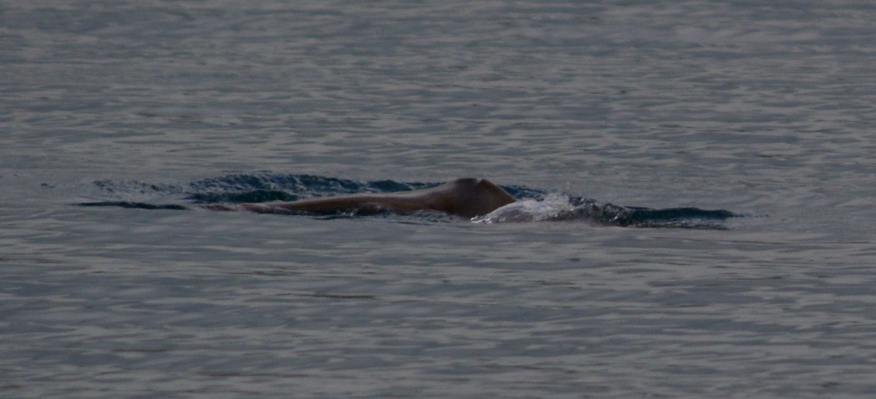 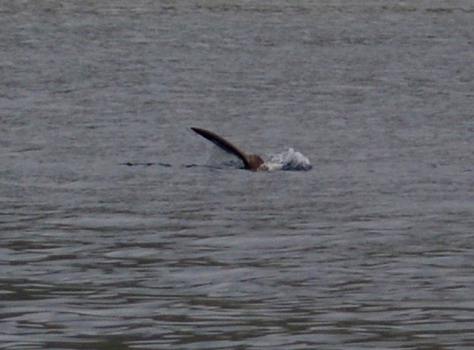 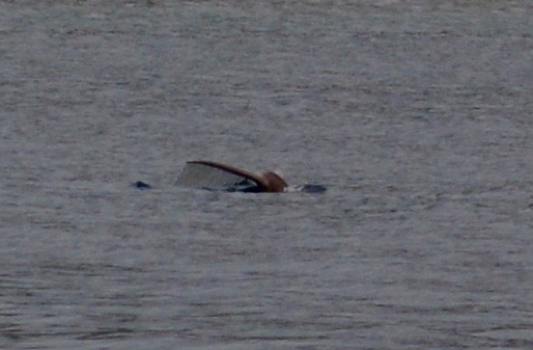 Not a humpback, a dugong just diving and a couple of snaps of his tail. After breakfast and a swim we headed off to the village to make our deliveries. The whole family were sat under a tree on mats, having just finished eating lunch (it was about 11am). 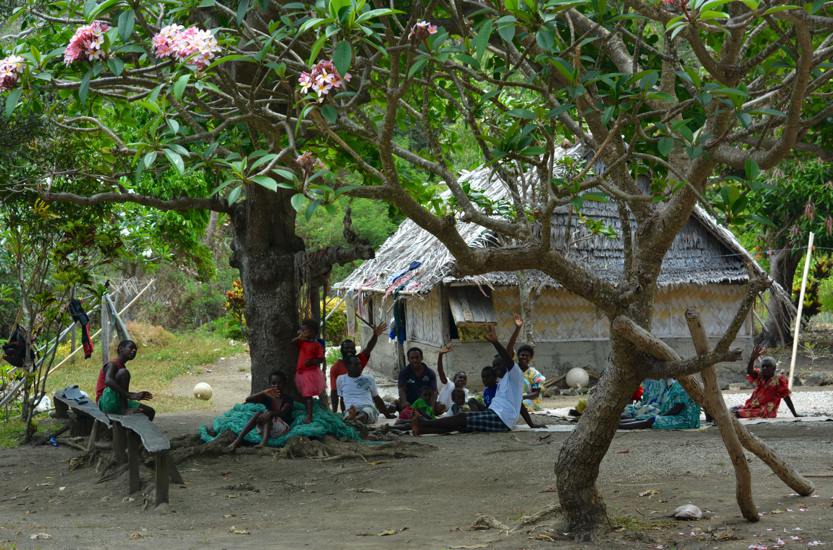 They welcomed us and, after we’d passed on the gifts, including biscuits and toys for the children, we sat down with them for toktok. They wanted to know the news from the capital and what was the state of the drought on the other islands. Phil told them all about the chiefs coming to make amends and pass on concern regarding the corrupt politicians (15 MPs are in jail!). They had brought with them on the ferry live pigs (one a hermaphrodite, a rare and precious offering), kava and mats to present to the President of the Council of Chiefs. Along with the pigs and gifts the President takes on their concerns and the responsibility to do something about it. The Chiefs could return to their villages at peace. Phil had bad news to pass on too: seven children had died on Santo due to the drought. Low water levels mean rain water tanks are empty and wells have silted up. People are using water from rivers that aren’t clean and not boiling the water. Seeing how hungry they were for news made us realise how isolated these communities are. We left them a couple of newspapers so they could catch up some more. 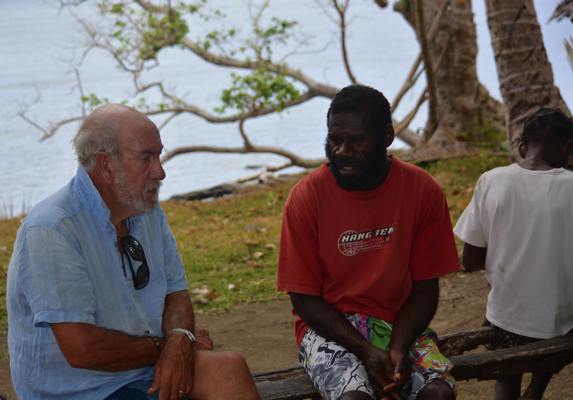 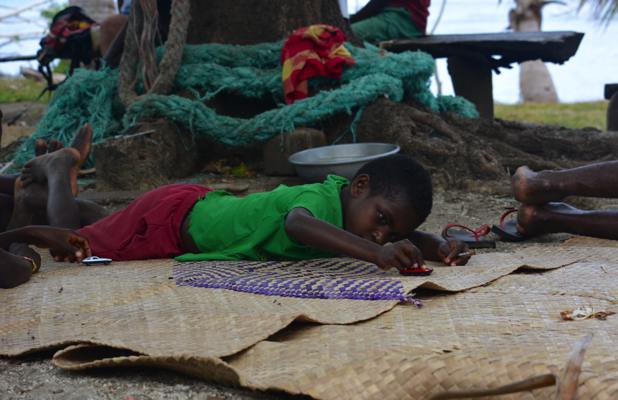 Chief Sovereign catching up on news whilst the boys play with their cars. Back at the anchorage all was peaceful again. As the evening drew in our attention was drawn to the sky: first a bird of prey wheeling around the bay, I think a Swamp Harrier, then the flying foxes started waking up and flying high above us across to the mainland to feed. They have black wings and faces but brown bodies, with tiny little arms and hands on the top of each wing and are big - two or three feet wingspan. I find them equally fascinating and repulsive! 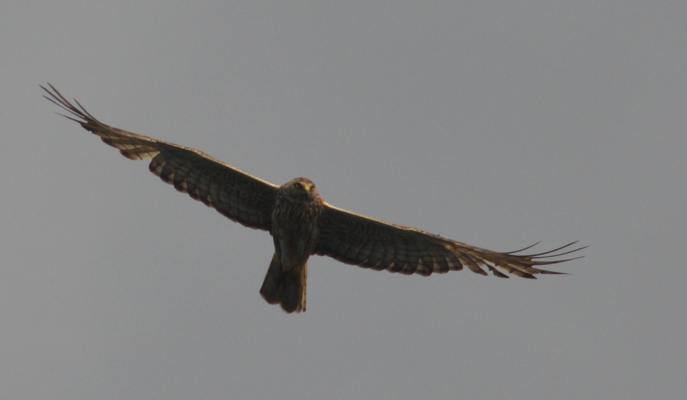 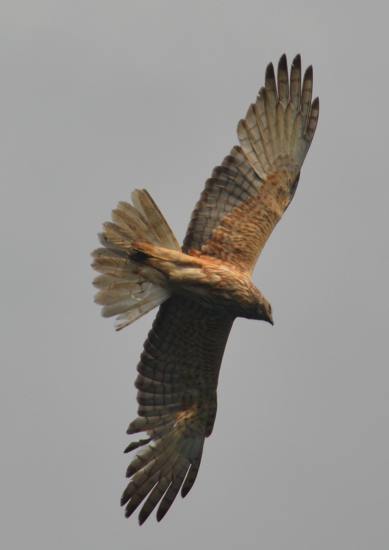 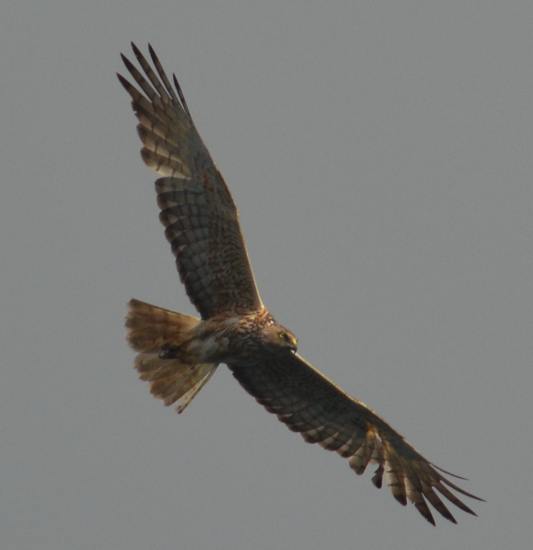 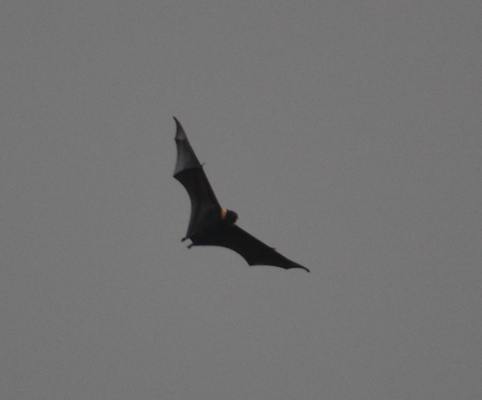 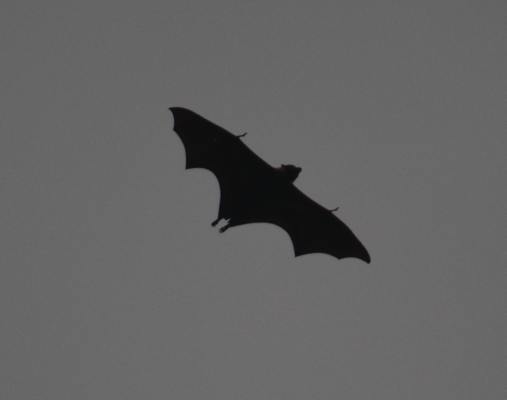 Swamp Harrier and Flying Foxes. It was a pleasure to bring a few much needed supplies to this community. They have a beautiful village, built with their own hands, but life is a struggle. There’s the damage to buildings from Cyclone Pam still needing repair and this current drought is bringing challenges. Gardens need rain to grow and the rain water tanks are no good without rain. The simple tools we were able to give them: a saw, nails, a hammer, a spade, a whet stone, will make a big difference to them. Imagine trying to build houses, dig a well, grow a garden, get fire wood, without them. And what did they give us? They gave us their friendship, if we ever needed them they’d be there for us, and the privilege of having a glimpse of a different way of life: a different value system, with different joys to experience and endeavours to undertake. 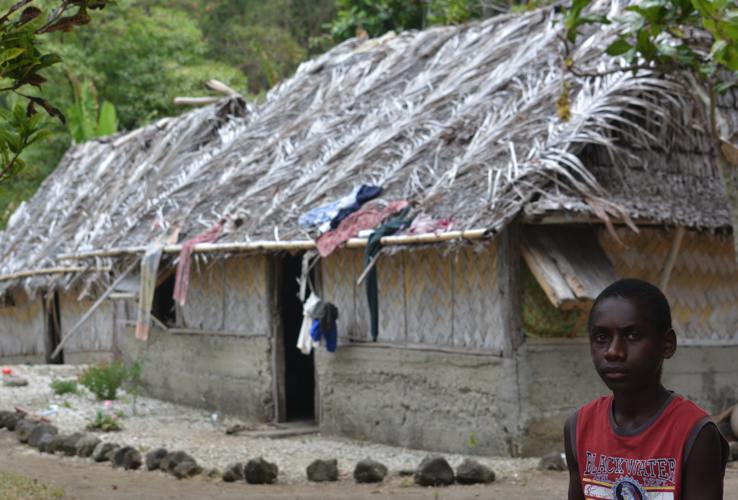 |